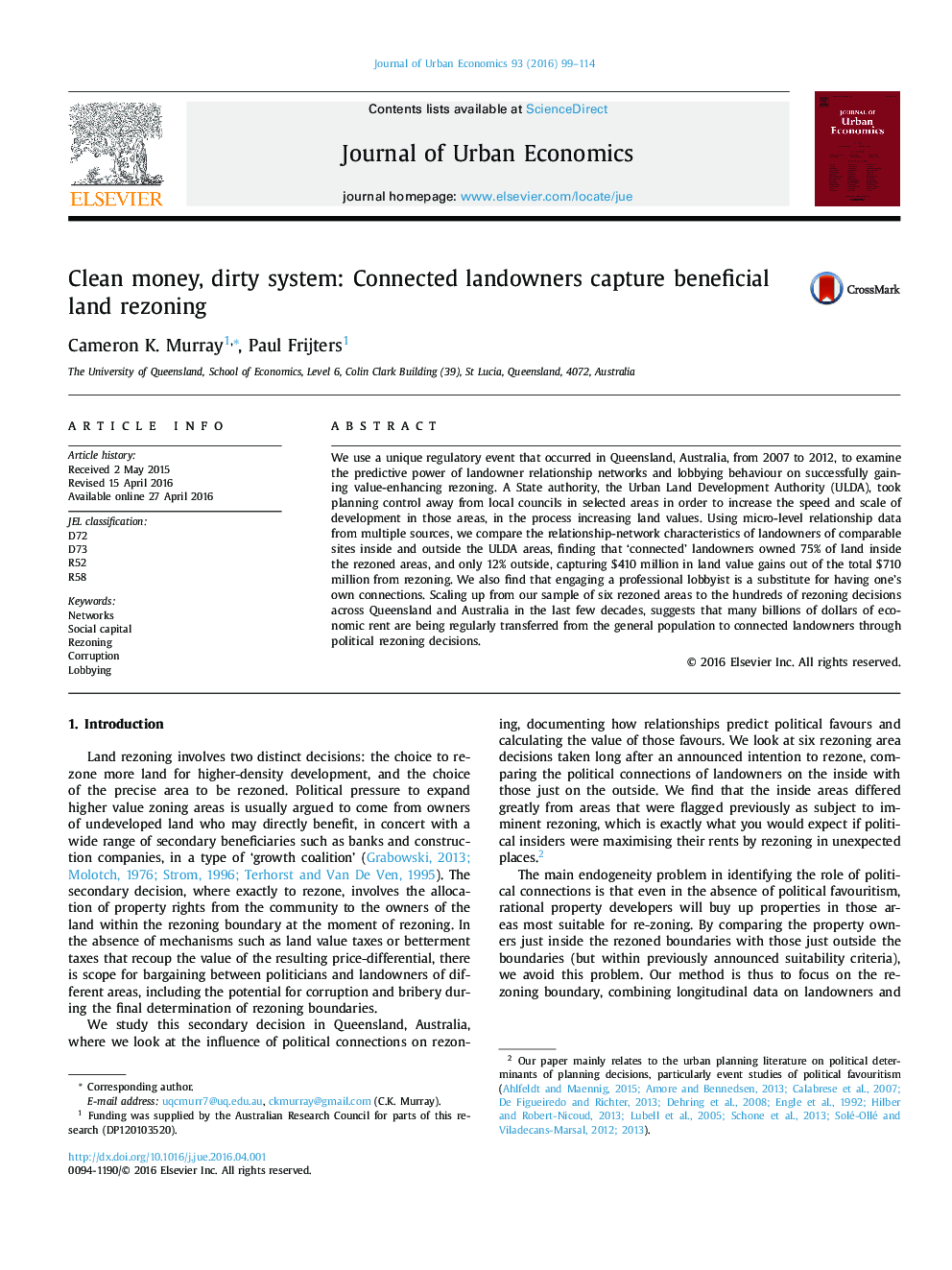| Article ID | Journal | Published Year | Pages | File Type |
|---|---|---|---|---|
| 970596 | Journal of Urban Economics | 2016 | 16 Pages |
We use a unique regulatory event that occurred in Queensland, Australia, from 2007 to 2012, to examine the predictive power of landowner relationship networks and lobbying behaviour on successfully gaining value-enhancing rezoning. A State authority, the Urban Land Development Authority (ULDA), took planning control away from local councils in selected areas in order to increase the speed and scale of development in those areas, in the process increasing land values. Using micro-level relationship data from multiple sources, we compare the relationship-network characteristics of landowners of comparable sites inside and outside the ULDA areas, finding that ‘connected’ landowners owned 75% of land inside the rezoned areas, and only 12% outside, capturing $410 million in land value gains out of the total $710 million from rezoning. We also find that engaging a professional lobbyist is a substitute for having one’s own connections. Scaling up from our sample of six rezoned areas to the hundreds of rezoning decisions across Queensland and Australia in the last few decades, suggests that many billions of dollars of economic rent are being regularly transferred from the general population to connected landowners through political rezoning decisions.
